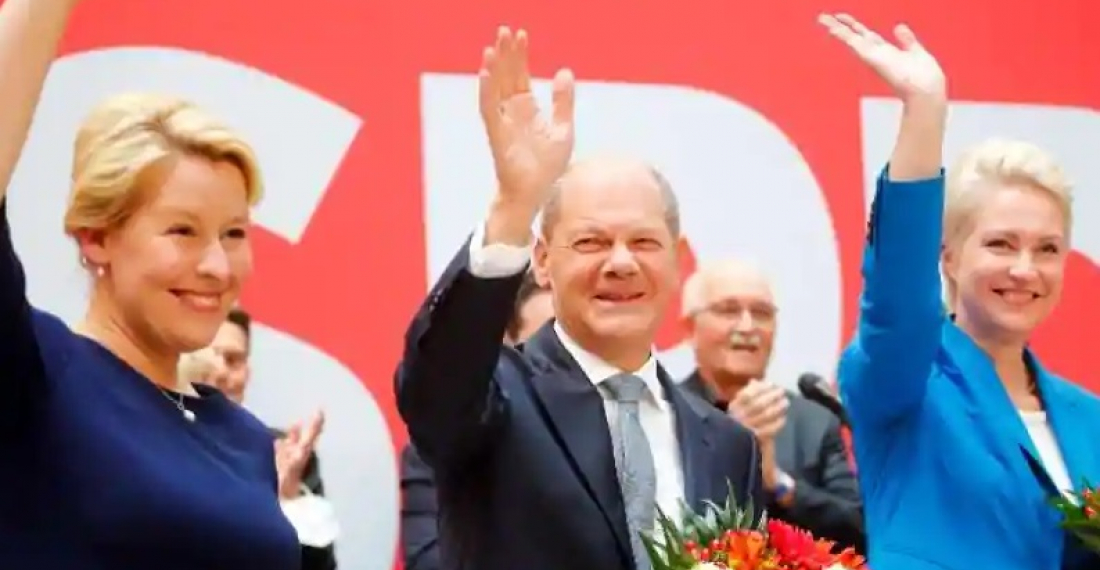Germans woke up this morning to a changed political landscape. It is difficult to call it a political earthquake, but change is in the air, and the prospect that by Christmas the country will have a chancellor from the Social Democratic Party (SPD) is likely.
After a hard fought election campaign, the result, as expected, did not give any single party an outright victory. But the SPD under Olaf Sholz won the first place, securing around 25.7% of the vote, whilst the party of outgoing Chancellor, Angela Merkel, the Christian Democrat-Christian Social Union (CDU-CSU) came a close second with 24.1%. For the CDU-CSU this is the worst election result since the establishment of modern Germany after World War II.
Despite the fact that Merkel herself remains popular and respected, her departure from the leadership of the party meant that Germans could look again at what the different parties had to offer. Two other parties, the Greens and the Free Democrats made considerable gains and are now the likely partners to join in a coalition with the SPD. Whilst that is not a done deal, it is what most observers consider to be the likely outcome. The details will have to be hammered out in the next weeks, and in the meantime Mrs Merkel stays as Chancellor until the process is concluded.
The German public broadcaster, Deutche Welle quoted Mr Sholz as saying at a press conference on Monday morning that "What is clear for us is that we can derive a mandate to build a government".
He laid out his preferred choice for a possible governing coalition.
"The Green party and FDP won a considerable increase in votes, and this is why we will be trying to enter into coalitions with these parties."
"We want to enter into a conversation with the other parties to form a government as quickly as possible," he added.
"A social, environmental, liberal coalition does have a past here in Germany, there's a tradition we can build on and it's what we need to do if we can tackle the challenges of the future," the possible future chancellor of Germany said.







